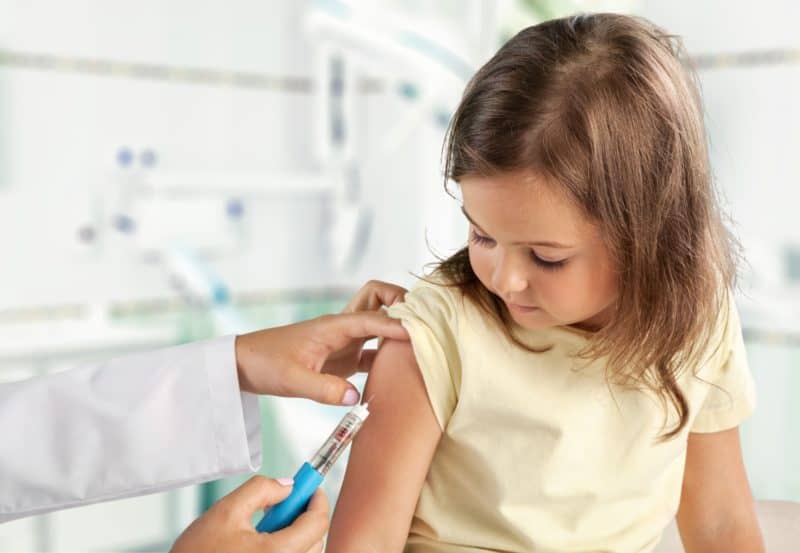
by: Romilly Hodges, MS, CNS published on Dr. Kara Fitzgerald’s Website
Additions by Cindy Dupuie (denoted by italics)
Formulating a vaccination plan
The decision about how and when to vaccinate should ideally be made with a trusted qualified provider who can assess the individual needs of each child. The first step is to determine a vaccination schedule that meets the child’s needs and reduces exposure to cumulative vaccine adjuvants such as aluminum.
We like Dr. Elizabeth Mumper’s (The Rimland Center for Health) vaccine schedule as an example of how to optimize the timing of vaccine administration. Dr. Fitzgerald’s balanced conversation on the topic with Dr. Hilary Andrews is also a wealth of information when it comes to vaccination planning.
How to prep your child for vaccinations
Having decided on your plan, here are our recommendations for supporting resilience during vaccination:
Begin 3 weeks before and continue for 1 week after vaccine administration (choose a liquid or powder format, that can be mixed into food as needed):
For ages 5-12 months, per day:
Vitamin D (800 IU)
Vitamin C (100 mg)
Vitamin A (1,500 IU)
Omega 3 (500 mg/d EPA + DHA)
Pediatric-specific probiotics (1/4-1/2 tsp)
For ages 1-5 years, per day:
Vitamin D (1200 IU)
Milk thistle 100-200 mg
Vitamin C (200-300 mg)
Vitamin A (2,000 IU)
Omega 3 (1000 mg/d EPA + DHA)
Probiotics (1/2 tsp)
For the ‘critical three days’ (the day before, the day of, and the day after vaccination), the following are safe for use in infants and children:
Bath (temperature appropriate) containing:
Chamomile and lemon balm: Steep 1 cup of the dried herbs in 8 cups of boiling water, covered for about 30 minutes. Strain and pour into a warm bath. Increase the amount to 2 cups of dried herbs from age 2-5, when using a full-size bath
Dissolved Epsom salts
Optimize hydration: Good hydration is always important, and it especially assists with the mobilization of toxins, including vaccine adjuvants from the body.
Breastfeed: Breastfeeding, where possible, is not only calming to an infant (potentially stemming stress-worsened immune dysregulation) but confers many nutrients and compounds that improve general resilience. It is important for Mom to stay generally nutrient replete, take care of gut health and minimize toxin exposure too.
Additional Notes:
- Don’t administer vaccinations when the child is sick or is around people who are sick. Nor when the child is exposed to high-stress events. If you’re working with a Functional Medicine pediatrician, they would also be able to check that there is no underlying inflammation going on (e.g. high CRP, quinolinate) that could potentially worsen an adverse effect.
- Administer vaccines on a Friday to minimize exposure to infections at daycare immediately after.
- Avoid cigarette exposure and minimize exposure to other toxins in general – choose ‘clean’ baby, personal and home care products. The EWG is a great source of information, as is the Gentle Nursery.
- Do NOT administer acetaminophen or Tylenol as this compromises production of glutathione which is our master detoxifier.
- Don’t forget your child’s diet! Keep it ‘clean’ (i.e. mostly organic) and nutrient dense. Avoid pro-inflammatory junk foods and sugary foods.
Additional Recommendations for Breastfeeding Moms:
The following nutrients for Mom, whether as supplements or through diet, may also support resilience in baby:
- N-acetyl cysteine (NAC)
- Magnesium
- Vitamin C (1000-3000 mg)
- Milk thistle 500 mg
- Zinc
- Probiotics
If you’re not currently breastfeeding, you can speak with your Functional Medicine provider about the possible short-term inclusion of those nutrients, administered directly to baby, that are not already covered above.
These recommendations are of course no guarantee of outcome. However, they are what we use in clinic and for our own families. Share your own stories and thoughts below!